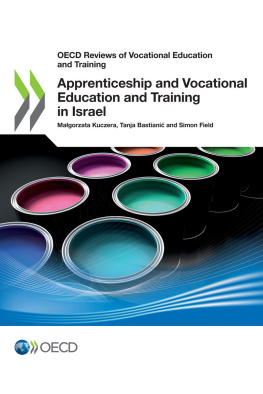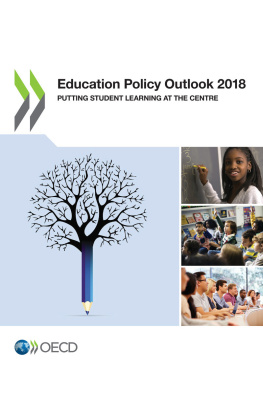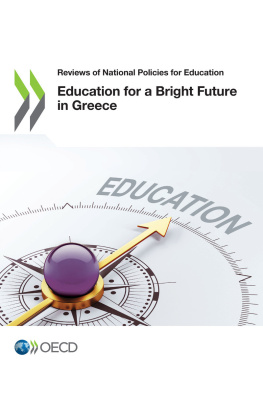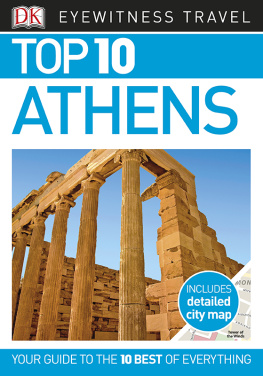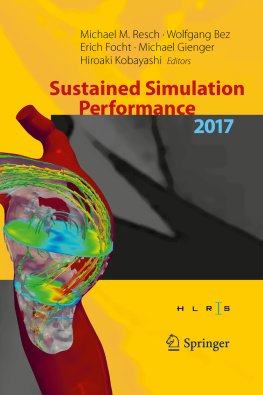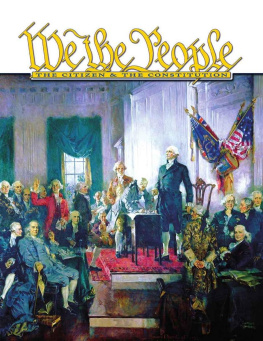coll. - Higher education in Kazakhstan 2017.
Here you can read online coll. - Higher education in Kazakhstan 2017. full text of the book (entire story) in english for free. Download pdf and epub, get meaning, cover and reviews about this ebook. City: Kazakhstan., year: 2017, publisher: OECD Publishing, genre: Politics. Description of the work, (preface) as well as reviews are available. Best literature library LitArk.com created for fans of good reading and offers a wide selection of genres:
Romance novel
Science fiction
Adventure
Detective
Science
History
Home and family
Prose
Art
Politics
Computer
Non-fiction
Religion
Business
Children
Humor
Choose a favorite category and find really read worthwhile books. Enjoy immersion in the world of imagination, feel the emotions of the characters or learn something new for yourself, make an fascinating discovery.

Higher education in Kazakhstan 2017.: summary, description and annotation
We offer to read an annotation, description, summary or preface (depends on what the author of the book "Higher education in Kazakhstan 2017." wrote himself). If you haven't found the necessary information about the book — write in the comments, we will try to find it.
Higher education in Kazakhstan 2017. — read online for free the complete book (whole text) full work
Below is the text of the book, divided by pages. System saving the place of the last page read, allows you to conveniently read the book "Higher education in Kazakhstan 2017." online for free, without having to search again every time where you left off. Put a bookmark, and you can go to the page where you finished reading at any time.
Font size:
Interval:
Bookmark:
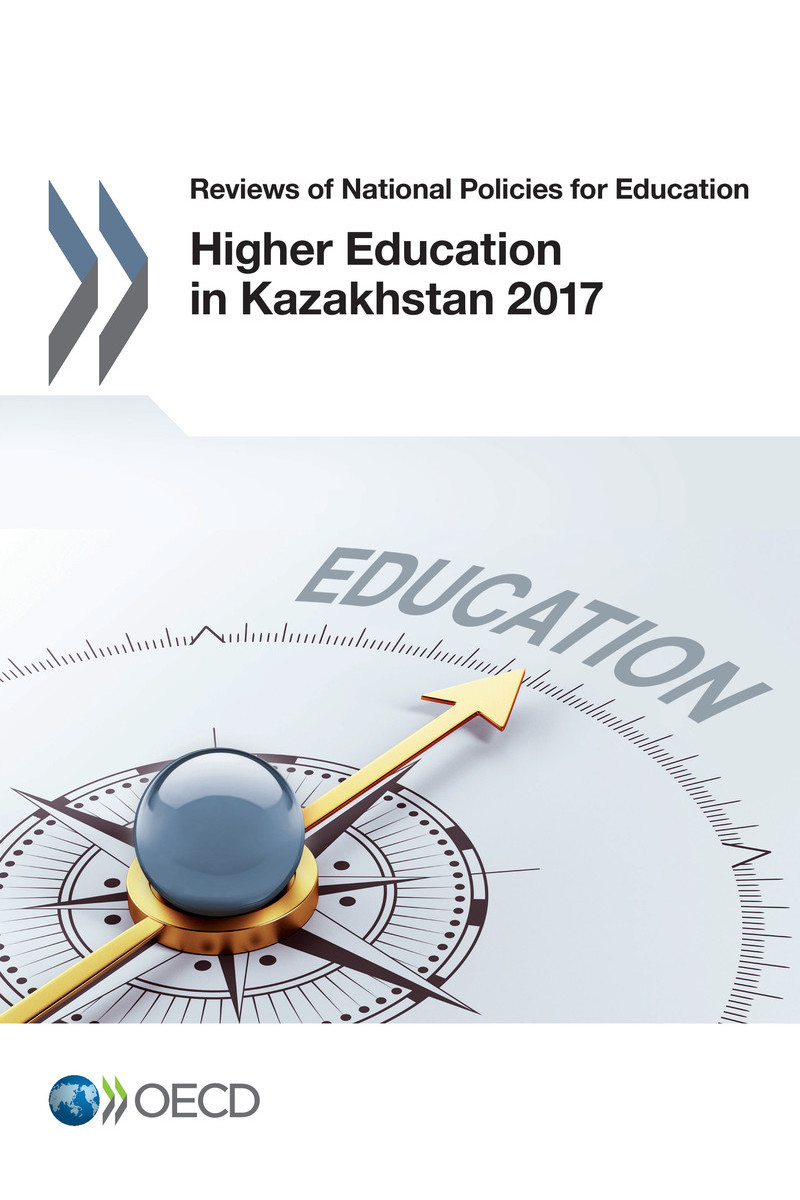
Flicitations et merci davoir tlcharg lun de nos tout nouveaux ePub en version bta.
Nous exprimentons ce nouveau format pour nos publications. En effet, mme si lePub est formidable pour des livres composs de texte linaire, le lecteur peut tre confront quelques dysfonctionnements avec les publications comportant des tableaux et des graphiques tout dpend du type de support de lecture que vous utilisez.
Afin de profiter dune exprience de lecture optimale, nous vous recommandons :
- Dutiliser la dernire version du systme dexploitation de votre support de lecture.
- De lire en orientation portrait.
- De rduire la taille de caractres si les tableaux en grand format sont difficiles lire.
Comme ce format est encore en version bta, nous aimerions recevoir vos impressions et remarques sur votre exprience de lecture, bonne ou autre, pour que nous puissions lamliorer lavenir. Dans votre message, merci de bien vouloir nous indiquer prcisment quel appareil et quel systme dexploitation vous avez utilis ainsi que le titre de la publication concerne. Vous pouvez adresser vos remarques ladresse suivante :
Merci !
Congratulations and thank-you for downloading one of our brand-new ePub-in-beta editions.
We're experimenting with this new format and, while ePub is fantastic for books with linear text, for books with charts, tables and graphs weve found some things may not work perfectly it depends on the device youre using.
So, for an optimal reading experience, we recommend:
- Using the latest version of your devices operating system.
- Reading in portrait mode.
- If large tables are tricky to read, try reducing the text size.
As this is an ePub-in-beta edition, we would be glad to receive feedback on your reading experience, good or otherwise, so we can improve for the future. When writing, please let us know which device/operating system you were using and the title of the publication. Write to:
Thank you!
OECD (2017), Higher Education in Kazakhstan 2017, Reviews of National Policies for Education, OECD Publishing, Paris, http://dx.doi.org/10.1787/9789264268531-en.

Kazakhstans higher education system is at the forefront of the countrys economic diversification challenge. While progress has been made over the past ten years, significant additional improvements will be required if Kazakhstan is to achieve its aims of developing high-quality, labour market relevant skills throughout the population, and establishing research and innovation as a key driver of economic growth. There are currently few measures of the current skills outcomes of the countrys education and training systems available, and of how well these systems are positioned to meet the needs of the labour market. Furthermore, much of the evidence on skills outcomes that does exist is not encouraging. Four principal features characterise the nations higher education system: low level of public funding, inefficient targeting of this funding, the legacy of central planning on the performance of higher education institutions, and information gaps that create obstacles to the implementation of evidence-based policy making and accountability.
In the past decade, Kazakhstani policy makers have recognised those key challenges and identified actions to address them. The country has embarked on an ambitious series of reforms which go some way towards addressing those challenges. A new State Programme for Education and Science Development 2016-2019 (SPESD) lays out the national strategy for the education sector in the coming years. It identifies priorities, targets, and indicators to be achieved by 2020 from preschool to higher education. Priorities range from developing new mechanisms of education financing such as per capita financing, to developing inclusive education with support for low-performing students. At the higher education level, the primary objectives of the SPESD include: equipping students with skills more relevant to the labour market; integrating Kazakhstan more fully into the European Higher Education Area; improving synergies between education, science and industry; stimulating the commercialisation of research; fostering national identity; and encouraging active citizenship and social responsibility.
Building on the 2007 joint OECD/World Bank report on Higher Education in Kazakhstan, this review examines how Kazakhstan can respond to current challenges by strengthening its higher education system to ensure that it equips students with the skills, knowledge and potential for innovation that are essential for economic and social well-being. It identifies which aspects of the six key areas from the previous report-quality, access, internationalisation, research and innovation, funding and governance-still require improvement. It also makes a number of recommendations for further reform, drawing on international experience and best practices from high-performing systems around the world.
This report encourages Kazakhstan to focus on the following areas to prepare students from all backgrounds to become part of a highly skilled workforce, able to compete in the worldwide economic community:
Build a strong quality assurance system that emphasises the high quality skills critical for labour market success and for social well-being, as well as on the quality of higher education inputs (i.e. student and faculty qualifications) and processes (i.e. instructional methods).
Examine the affordability of higher education and explore ways to increase access and tackle problems of inequity such as improving data systems to better monitor performance in the areas of access and participation.
Take a whole-of-government approach to international higher education, with a robust policy framework and national strategy that aligns with Kazakhstans goals for human capital development and ensure that all actors benefit-from higher education institutions to students.
Font size:
Interval:
Bookmark:
Similar books «Higher education in Kazakhstan 2017.»
Look at similar books to Higher education in Kazakhstan 2017.. We have selected literature similar in name and meaning in the hope of providing readers with more options to find new, interesting, not yet read works.
Discussion, reviews of the book Higher education in Kazakhstan 2017. and just readers' own opinions. Leave your comments, write what you think about the work, its meaning or the main characters. Specify what exactly you liked and what you didn't like, and why you think so.









